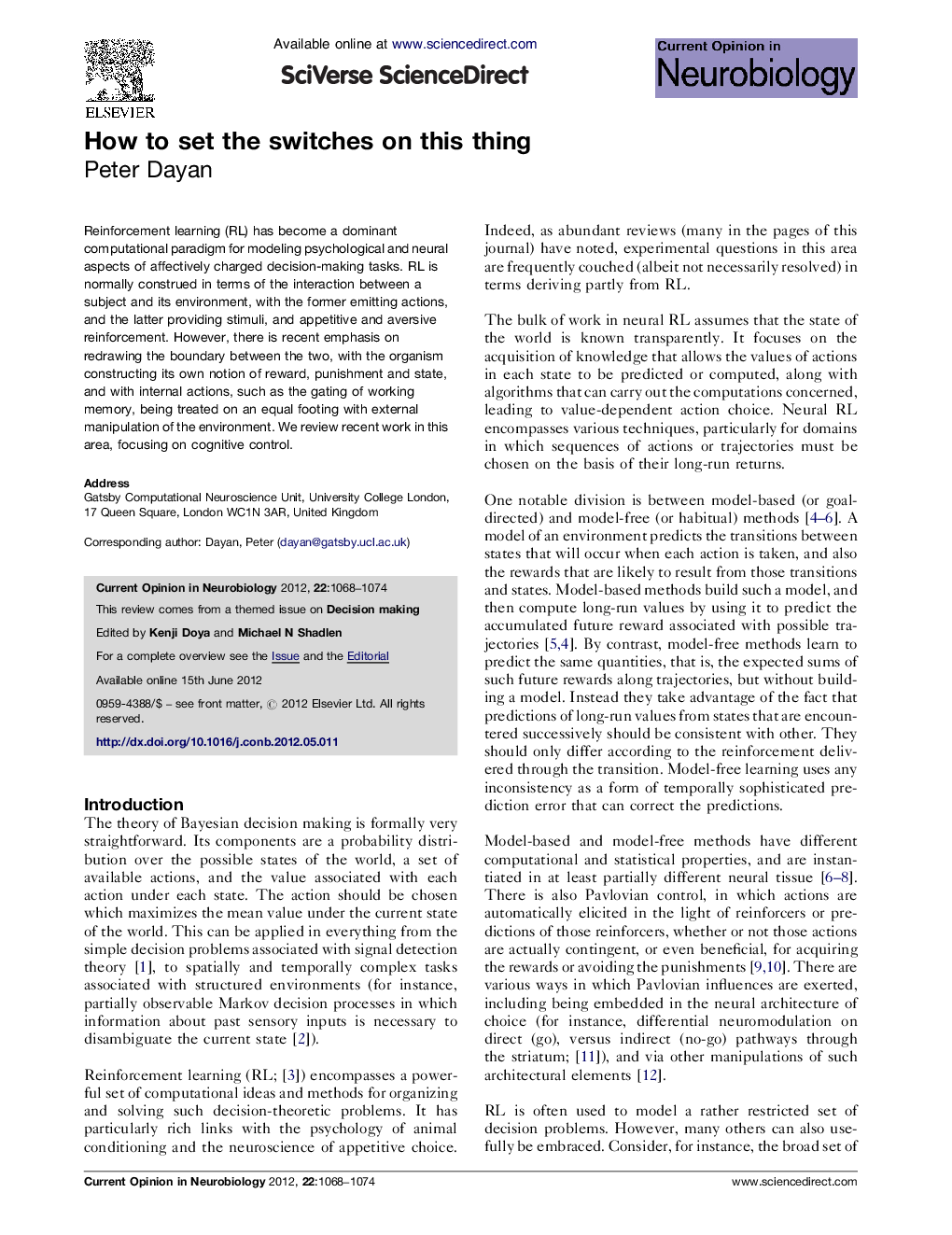| Article ID | Journal | Published Year | Pages | File Type |
|---|---|---|---|---|
| 6267284 | Current Opinion in Neurobiology | 2012 | 7 Pages |
Reinforcement learning (RL) has become a dominant computational paradigm for modeling psychological and neural aspects of affectively charged decision-making tasks. RL is normally construed in terms of the interaction between a subject and its environment, with the former emitting actions, and the latter providing stimuli, and appetitive and aversive reinforcement. However, there is recent emphasis on redrawing the boundary between the two, with the organism constructing its own notion of reward, punishment and state, and with internal actions, such as the gating of working memory, being treated on an equal footing with external manipulation of the environment. We review recent work in this area, focusing on cognitive control.
⺠Reinforcement learning (RL) offers a very general account of affective choice; however, adjustments are called for associated with all three elements of Bayesian decision theory. ⺠Key elements of rewards and value are intrinsic to the agent rather than provided externally. ⺠The construction of state is itself the product of a set of internal attentional and mnestic decisions. ⺠These internal decisions, and those associated with constructing the menu of choices are themselves natural targets for RL.
